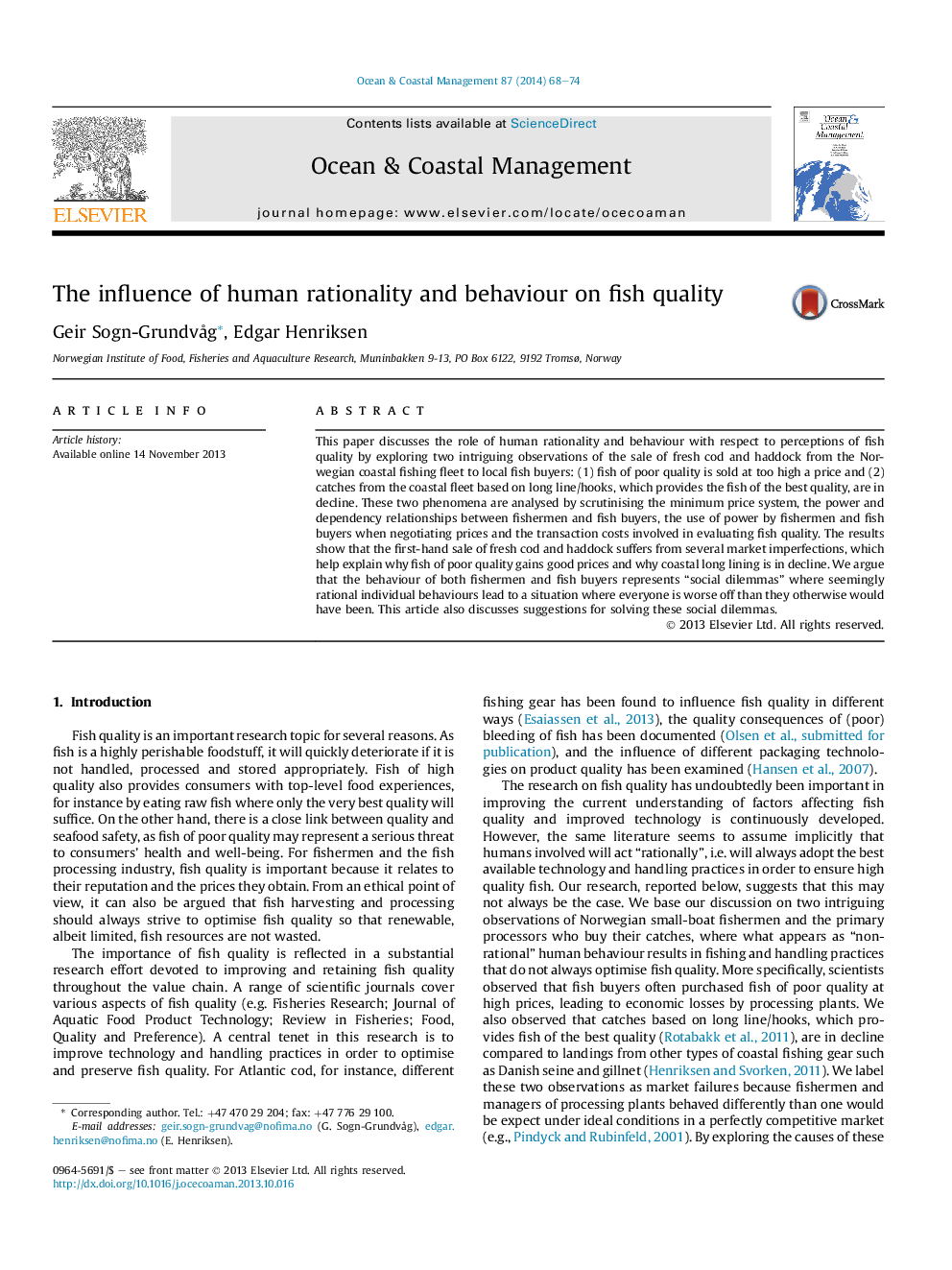| Article ID | Journal | Published Year | Pages | File Type |
|---|---|---|---|---|
| 1723821 | Ocean & Coastal Management | 2014 | 7 Pages |
•Address how and why the rationality and behaviours of fishers and fish buyers may influence fish quality.•Examine why fish of poor quality is sold at a too high price.•Examine why catches based on long-line is in decline.•Consequences and policy implications are discussed.
This paper discusses the role of human rationality and behaviour with respect to perceptions of fish quality by exploring two intriguing observations of the sale of fresh cod and haddock from the Norwegian coastal fishing fleet to local fish buyers: (1) fish of poor quality is sold at too high a price and (2) catches from the coastal fleet based on long line/hooks, which provides the fish of the best quality, are in decline. These two phenomena are analysed by scrutinising the minimum price system, the power and dependency relationships between fishermen and fish buyers, the use of power by fishermen and fish buyers when negotiating prices and the transaction costs involved in evaluating fish quality. The results show that the first-hand sale of fresh cod and haddock suffers from several market imperfections, which help explain why fish of poor quality gains good prices and why coastal long lining is in decline. We argue that the behaviour of both fishermen and fish buyers represents “social dilemmas” where seemingly rational individual behaviours lead to a situation where everyone is worse off than they otherwise would have been. This article also discusses suggestions for solving these social dilemmas.
